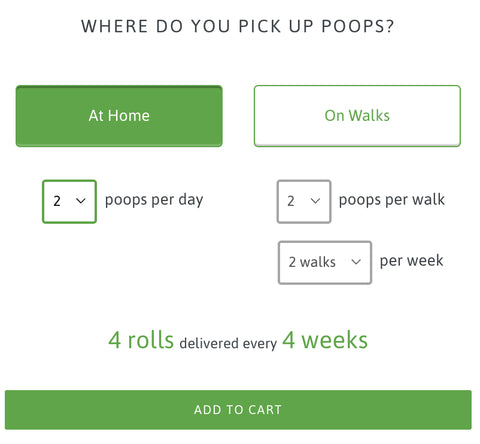Biodegradable Poop Bags vs Compostable Poop Bags
‘Biodegradable’ and ‘compostable’ are terms that are often used interchangeably but they really shouldn’t be. But what’s the actual difference between the two terms? Biodegradable refers to any materials that break down in the environment – for example, a plastic bag over time will fragment into smaller pieces but these can still be harmful to organisms and soils. Compostable, on the other hand, are made of organic matter which micro-organism’s decomposers are able to completely break down to form a nutrient-rich soil or “compost” for fruits and plants.
As plastic contributes to pollution, especially in the world's oceans, where they are known for forming massive rafts of plastic like the Great Garbage Patch in the Pacific, it's important we do our part in reducing the usage of plastic or seek alternatives that do properly break down.
We’ll break down the difference between biodegradable and compostable poop bags and which one works best for your pet’s poop.
Biodegradable poop bags are a lie
The term ‘biodegradable’ seems straightforward enough and seems to say that the plastic will break down organically. It’s easy to believe that increased use of biodegradable plastics is a smart choice for both customers and the planet — all the benefits of plastic, without adding to the Earth’s current pollution. The truth, however, is far darker — and that biodegradable plastic isn’t nearly as green as it sounds.

By definition, biodegradable is of something “capable of being decomposed by bacteria or other living organisms”. Poop bags that say they are biodegradable can easily end up in landfill where they are buried amongst a tonne of other waste and don’t nearly reach the conditions needed to fully break down. Biodegradable products do break down at a certain point much later in the future but they leave behind micro-plastics that take even longer to deteriorate and bring more harm to our plant and wildlife.
The Federal Trade Commission has mentioned warnings about marketers claiming their plastic waste bags were biodegradable and deceiving its customers that their bags will biodegrade in as little as one year. Unfortunately, this is true on many poop bags that claim to be earth-friendly or biodegradable don’t actually break down within a year, and some never degrade at all.
There are not nearly enough guidelines in place for when it comes to marketing a product as biodegradable as opposed to compostable, therefore making it hard to tell if a biodegradable poop bag really does what it is advertised.
Choosing compostable dog poop bags
Labelling any plastic as ‘compostable’ must meet the legislative guidelines for advertising compostable products in New Zealand. When something is compostable, this means that it is capable of fully break down into natural components in a compost environment, usually soil, leaving behind no toxic residue.
Compostable dog bags require very specific environments to break down but it can be done in small concentrated areas like your home garden. Composting dog poop bags at home requires a proper pet waste bin and the compost needs to be between 50 and 65 degrees celsius between days six to eight to destroy any harmful pathogens.
Use only the best compostable dog poop bags like Eco Poop Bags that can be thrown in a home compost or industrial compost.
How many compostable bags should you need?
Longer rolls of dog poop bags will obviously last through more dog walks than a smaller packet. If you take your dog out in the public park or down street and therefore need to scoop his mess more often, choose a roll of 4 rolls delivered every 2 weeks as this will save you money and the hassle of having to purchase ever so often.

For older or less active dogs that only need one walk per day, you'll likely need fewer bags, so 4 rolls of 60 compostable poop bags delivered every 4 weeks should work out best for you. Subscribing to Eco Poop Bags will help you save cents, in the long run, no matter how often you walk your best friend and buying online means you can order in the comfort of your own home.
When used properly, poop bags made of compostable ingredients can help with our pollution crisis. And generally speaking, they’re still the best choice, even when you’re tossing them in the bin. Whether you install a pet waste composter in your backyard or put compostable bags in the garbage, you’re doing your part by keeping loose poop off the streets!
